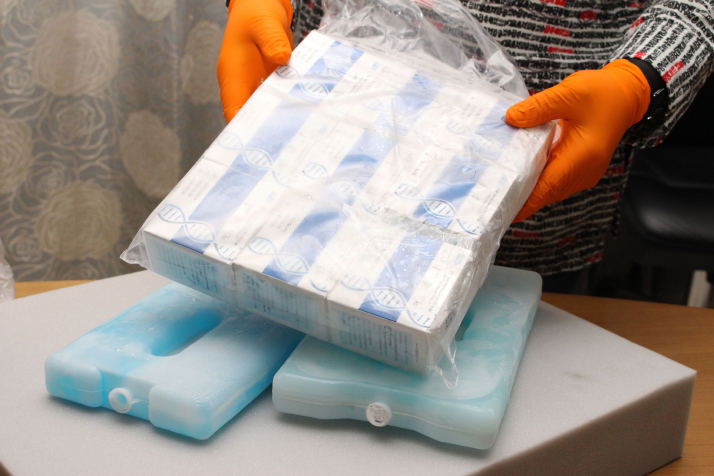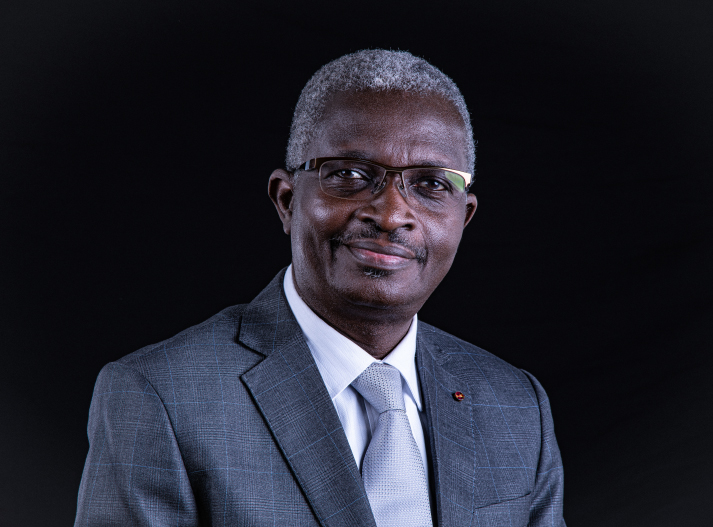|
||||||||||
| Home Nation World Business Opinion Lifestyle ChinAfrica Multimedia Columnists Documents Special Reports |
|
||||||||||
| Home Nation World Business Opinion Lifestyle ChinAfrica Multimedia Columnists Documents Special Reports |
| ChinAfrica |
| China, Africa set to strengthen cooperation on healthcare |
| On May 7, Simon Pierre Adovelande, Ambassador of Benin to China, sat down with ChinAfrica, sharing his views on the COVID-19 pandemic. Ambassador Adovelande talked about the current epidemic situation in Benin and its impact on the country, as well as Sino-African relations |
| VOL.13 June ·2020-06-01 |

ChinAfrica: What is the latest situation of the COVID-19 epidemic in Benin?
Simon Pierre Adovelande: Since March 16, when the first confirmed COVID-19 case was announced in Benin, we have had 96 confirmed cases, 50 of which have been cured, two have died and 44 are still in treatment. This shows that over the last 50 days, the situation has remained under control.
Health and prevention measures taken by the government of Benin are regularly re-evaluated and adapted to the socio-economic conditions of our country. Our awareness and information campaign is still going on.
In its overall strategy to fight the epidemic, our government has moved to the screening phase where we seek to test as many people as possible, which presents some challenges for us in terms of the supply of testing kits, but the situation is evolving positively and corrective measures are being taken gradually.
As of today, what we are seeing is that some treatments that have been used to prevent and cure other diseases specific to the African continent, such as malaria, may have developed a more resistant immune system to this particular coronavirus among the African population.
But studies will tell us later exactly what the real reasons for this resistance are. And we must also focus on traditional African medicine, which is widely used, especially medicinal plants. Such plants provide African people with a strong capacity for resisting different viruses. All of this put together may explain the strong resistance that we are now seeing on the African continent.

Simon Pierre Adovelande, Ambassador of Benin to China
What are the main challenges facing Benin in this time of pandemic?
The challenge right now is to raise awareness. Our population is mostly rural, so we need to develop communication campaigns related to protective and preventive measures.
We also need to make sure our people understand the importance of early detection of the disease, which the government has been putting in place.
Another challenge is the supply of medical and testing kits, given the slowdown in the number of flights we see today between the rest of the world and Benin. These challenges are now being met in order to have as many pieces of equipment as possible on the ground for the greatest number of people, including masks and testing kits.
The measures that we have taken are adapted to local conditions in Benin. We have not put people in forced lockdown, as we have seen in some other countries. We have thus been able to avoid an abrupt break between daily life and the anti-epidemic measures that have been put forward.
From this point of view, and based on the review that we have carried out, we see the effectiveness of these measures and the support of the people. There are no curfews, no military personnel to coerce people to stay home, because the measures are in line with our people's daily life.
As soon as the epidemic began, African countries were quick to lend their support to China. Today, as the continent struggles in its fight against the pandemic, China has, in turn, shared its anti-epidemic experience and donated medical equipment. In this context, how do you see the role of Sino-African cooperation?
Sino-African cooperation, in my opinion, can be seen as having two levels. On the first level, China was the first country to face the pressure and the challenge of the novel coronavirus. Therefore, there is experience to be learned from, because the country won the fight and overcame this pressure. China can now share its experience with all other countries in the world that are going through the same situation. The experience relates to the management of the sick, the management of the pressure on the existing system resulting from a peak in demand for healthcare, and the strict containment measures that have been rolled out in China.
The second level, which is more important in my view, is that there is already a framework for cooperation between China and Africa, namely the Forum on China-Africa Cooperation (FOCAC), which during its last summit held in Beijing in September 2018 had already announced avenues for cooperation. One of these avenues is related to social development, the improvement of medical care and the development of public health. Within this framework, action plans have already been made for the 2019-21 period. These actions will be implemented strategically, but also taking into account the current situation of the COVID-19 pandemic.
In terms of the cooperation between China and Benin during the epidemic, it must be said that the anti-epidemic measures depend specifically on the socio-economic conditions of each country. It is for this reason that Benin has opted against the lockdown of its entire population, but rather has set up a so-called sanitary cordon. On the other hand, when it comes to caring for the sick, treatment and research, I think that China can share its experience in these aspects.
In addition, traditional medicine is one potential avenue. Cooperation between traditional Chinese medicine and traditional Beninese medicine presents an opportunity to develop new products and open up areas of experience exchanges. Medicinal plants in Africa are very well known, and they have also proven themselves to be effective over several decades.
Our task now is to bring them up to standard and adapt them for large-scale production on par with international standards. This is therefore a tangible and serious avenue for cooperation.
Since the outbreak of the Ebola epidemic, what progress has been made in Benin in order to strengthen the public health system?
In the case of Benin, the COVID-19 epidemic came as a test of the measures that were rolled out by President Patrice Talon since 2016 in the health sector. We were already in the process of reforming our country's health sector to bring it up to standard and strengthen our healthcare capacities.
The epidemic has shown us the effectiveness of what has been done in Benin, but also the sectors and links that will need to be strengthened. No country in the world can cope with the brutal and sudden pressure that the coronavirus epidemic puts on the existing health system.
Of course, there is work to be done and adjustments to be made. In the case of Benin, we have 96 reported cases to date and our healthcare system is able to absorb the current pressure. What we are doing today is to do as much screening as possible so as not to put too much pressure on the healthcare system.
(Print Edition Title: Vigorous Engagement)
Comments to zanjifang@chinafrica.cn
| About Us | Contact Us | Advertise with Us | Subscribe |
| Copyright Beijing Review All rights reserved 京ICP备08005356号-5 京公网安备110102005860号 |